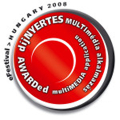Current events
We try to lend a helping hand to as many African children and families in need as possible and to provide them with an efficient, cross-sectoral and sustainable assistance. Beside our projects on the ground, we also organise a number of presentations and programmes in Hungary so that everyone can discover the cultural and natural values of the African continent. We try to reach as great a public as possible, inform it about our work and win over new and new supporters for our cause. You can find updates on our projects and events by surfing the News.
The impact of dirty water and unsafe sanitation
2015. July 08.
What claims the lives of nearly half a million Africans every year? What costs Africa’s economies more than $50 billion every year? What is causing half of Africa’s hospital beds to be full?
Photos related to the news article
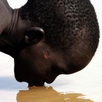
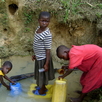
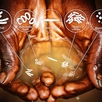
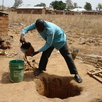
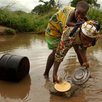
Michael Ojo, WaterAid Nigeria Country Representative, explains the impact of dirty water and unsafe sanitation is having on African lives.
What claims the lives of nearly half a million Africans every year? What costs Africa’s economies more than $50 billion every year? What is causing half of Africa’s hospital beds to be full?
The answer is simple; it is our lack of access to clean drinking water, basic sanitation and hygiene services.
The latest figures are just out, and the news is not good. More than a third of Africans are still drinking water from unsafe sources, with over 1 in 10 from surface water. A staggering 70% of us lack access to basic sanitation and nearly a quarter are practicing open defecation.
In Nigeria, the statistics show how far we still have to go. There are 36% without clean drinking water and 72% are lacking access to basic sanitation.
Even if we and our family have clean water and basic sanitation, this filth and disease that surrounds us is still a cause of illness and diseases for us all. It is costing all of us our time and our money. It is still keeping our children out of school. It is still killing us. It is Africa’s dirty secret.
Water Ministers from across Africa are this week meeting in Dakar, Senegal, at the African Water Week conference to discuss what should come after the Millennium Development Goal poverty reduction targets end in 2015.
A growing consensus is emerging that the time is right to say enough is enough, that no African, in fact that no person anywhere in the world, should be without clean water and hygienic sanitation.
Nearly a third of governments at the United Nations have already signalled that we need a dedicated goal on water and sanitation in the new Sustainable Development Goals and that they believe that this goal should be ambitious.
WaterAid, the organisation that I work for, has this week released a new online map, which shows what that ambition could look like for us on this continent. It shows the progress that African Governments have made to increase access to water and sanitation since 1990 and where we will be in 2030 based on current trends.
The map, which you can see at www.WaterAid.org/AfricaWaterWeek, shows that since 1990, 28 million Africans are gaining access to clean water each year, but that by increasing this by an extra 17 million, we can reach everyone with this service by 2030.
Some African countries are already on track to reach full coverage for water by 2030, including South Africa, Botswana, Namibia, Malawi, Uganda, Egypt, Tunisia, Guinea-Bissau and Ghana. Others like Cameroon, Morocco, Mali, Guinea, and Benin need to increase their rate of progress by just a few extra percentage points per year to hit this target.
If Nigeria increased access to clean drinking water by 3.2 million extra people every year, it too would be on track to reaching the historic mark of everyone in the country having access to clean drinking water by 2030. Other African governments, like Nigeria, have further still to go, but with better targeting of resources, we can end thirst for water on our continent for good.
Imagine an Africa where nobody has to want for clean drinking water, where the burden from diseases associated from poor sanitation is no longer a reality in our daily lives, but something that our children read about in our history books in amazement and disbelief that such a thing could have ever happened.
These are truly historic opportunities, ones that our Ministers in Dakar must grasp. The world is listening to Africa like never before. We have this once in a generation opportunity to speak with one voice, an African voice, to say that water and sanitation is essential for a happier, healthier and more prosperous future.
This is not a dirty secret that we can keep to ourselves anymore; we have to shout it out loud. Every man, woman and child deserves clean water and basic sanitation. This is our birthright.
